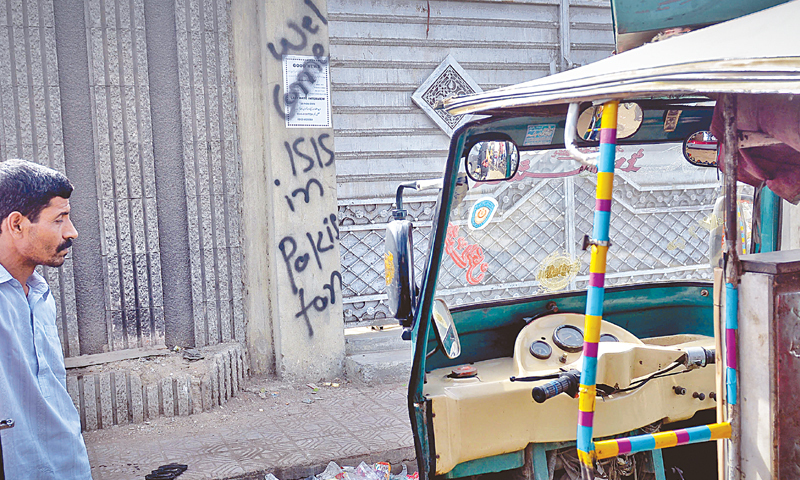By Tamim Asey
Afghanistan’s long-term stability, prosperity and unity depend on a clear, sustainable, and sustained peace process. A “quick fix” deal could jeopardize the investment in blood and treasure that the international community has made in the region over the past decade and a half. Former American President John F. Kennedy pithily described a peace process in words that fit the Afghan context well: “Peace is a daily, a weekly, a monthly process, gradually changing opinions, slowly eroding old barriers, quietly building new structures. And however undramatic the pursuit of peace, that pursuit must go on.” And Afghanistan’s own history demonstrates that any peace process must come from a position of strength, or else it will lead only to renewed instability.
The new Afghan Government of National Unity under the leadership of President Ashraf Ghani and CEO Abdullah Abdullah represents an opportunity to reset and reinvigorate the Afghan peace process, this time in a more systematic, organized and objective way with a roadmap featuring clearly defined objectives and a division of labor amongst the various stakeholders.
We look at some of the issues – and some of the stakeholders – that will play a major role in the peace process in the months and years to come.
The Definition Problem: Who Are the Taliban?
There is little consensus as to who the Taliban actually are. Former President Hamid Karzai has often referred to them as disgruntled sons of the soil, while Afghan security institutions and analysts consider them to be a conglomerate of core ideological Taliban, field commanders, and foot soldiers who comprise elements of the former Taliban regime, aggrieved individuals and tribal elders, victims of collateral damage, criminal networks, drug lords, foreign fighters (including Punjabis, Arabs, Chechens, and Uzbeks), and finally some elements of the Pakistan’s notorious Inter-Services Intelligence. Which of these elements are open to reconciliation is an important question for Afghans and the international community. The enemy needs to be clearly defined and a distinction made between those elements who might be brought into the fold and those who need to be dealt with by force.
A Roadmap for Peace: Process Versus Deal
The Afghan government and opposition lack both a cohesive and systematic approach and the necessary capacity to undertake a comprehensive peace process in Afghanistan. The Taliban has meanwhile shied away from publicly supporting or engaging with the peace process.
A first important step would thus be for the new Afghan government to chart a clear roadmap for the Afghan peace process, identifying objectives before, during and after negotiations, processes, red lines, and issues that are negotiable. The government should make it very clear that it is focused on a process and not on any deal that will inevitably be short lived.
Too Many Commissions, Too Few Achievements
Afghanistan is hardly new to peacemaking. During the Soviet War in Afghanistan, and then again during the internal turmoil of the 1990s, dozens of peace initiatives were undertaken by different rival parties, some brokered by neighbors, others by the UN, and still others by the Gulf States.
Former President Hamid Karzai established Afghanistan’s first National Independent Peace and Reconciliation Commission headed by former Afghan President Sibghatullah Mojaddedi. The sole significant achievement of this commission was to release a few prisoners. Later, in August 2007, a three-day joint Afghanistan-Pakistan peace jirga was convened, calling for cross border and bilateral cooperation to bring peace in Afghanistan. This was during the peak of Taliban resurgence and increased guerilla activity across the country.
That was followed by the formation of another commission and peace jirga on June 2, 2010, which approved the government’s plan to launch a comprehensive dialogue with the Taliban, with the result that the Afghan High Peace Council was formed. None of the declarations and resolutions of these jirgas were successfully implemented, and Afghanistan was left with an ever increasing number of jirgas, resolutions, commissions and staff, all lacking a clear mandate.
Pakistan’s Card
All roads to peace in Afghanistan pass through Rawalpindi and Islamabad. Pakistan holds the key to the Afghan peace process, but is smart enough to hold its cards close to its chest. The question of Taliban sanctuaries, safe havens, training camps, and the provision of logistical and military support has always been the main concern of the Afghan government, but little has been done to address these issues, except when they posed a direct threat to the coalition. Pakistan understands full well that the Taliban is its dog in the fight and it will only give it up as an instrument of foreign policy under pressure and in exchange for a deal that addresses its territorial insecurities, specifically the Durand line, and its strategic interests in Afghanistan. At this point it is unclear what kind of deal this might be, but Ghani and Abdullah have a chance to negotiate one with Pakistan in exchange for peace.
Gulf States: Business and Financial Hub
The Taliban finances its activities through opium, gems, extortion, and kidnapping, among other sources, but many of the dollars financing the Taliban insurgencies can be traced to the Gulf States. The Gulf States have traditionally been the business and financial hub for the Taliban and Haqqani network. It is no secret that former Taliban officials are involved in businesses in Dubai, Abu Dhabi, and other Gulf cities. The U.S. Treasury Department has long been monitoring the hawala system and has blacklisted a number of businesses linked to the Taliban.
Assisted by the U.S. and other international actors, the new Afghan government should seek to squeeze the Taliban financing network. This ought to include intelligence cooperation and systems to counter financing in the Gulf States. For their own security, the Gulf States themselves have reason enough to go after these networks and dismantle them.
The Neglected Roles of Iran and Central Asia
The ranks of the Taliban are filled with fighters from the Central Asian states of Uzbekistan, Tajikistan, Turkmenistan, and Kyrgyzstan, in addition to Chechens and others. The Taliban maintains close ties with the Islamic Movement of Uzbekistan (IMU), Chechen terrorist groups, and Chinese Uyghurs. Meanwhile, Iran has been accused by the West of providing medical, financial and logistical support to the Taliban in the volatile southern province of Nimroz.
Unlike the previous Karzai administration, Ghani and Abdullah have a golden opportunity to engage in a constructive dialogue with Central Asian states and Iran to cut the inflow of fighters and logistical support to the Taliban through a meaningful mechanism. This will require patience, foresight, and a strong foreign policy machinery.
Distant Collaborators: India, Russia and Turkey
The hijacking of Indian Airlines Flight 814 in December 1999, the recent pronouncements of jihad against India by the al-Qaeda leader Ayman Al Zawahiri, and the dozens of attacks on Indian diplomatic missions across Afghanistan all underscore the strategic importance of Afghanistan for India’s security. India has an important role to play in using its international influence, leverage and above all its intelligence expertise to help Afghanistan reach a piece deal.
Meanwhile, the Chechen problem is an important internal security threat for Russia. Moscow has traditionally been an important supporter of the former Northern Alliance and can still be a relevant factor. The Russians have vital security and regional interests in Afghanistan and any political, diplomatic and military investment in the Afghan peace process will be an investment in the security of the Russian Federation.
Turkey has important business and strategic interests in Central Asia and Afghanistan. Turkey’s status in the Islamic world and particularly Ankara’s influence over Pakistan could be important factors in helping the peace process along in Afghanistan. The trilateral talks between Afghanistan, Pakistan and Turkey have been an important venue for exchanging information and improving coordination, even if they have yet to produce tangible results. As a longtime ally and friend of both Pakistan and Afghanistan, Turkey could serve as an honest broker in peace talks.
The Taliban as Hezbollah
Times have changed, and the Taliban now has no choice but to relinquish its dream of returning to power and instead engage in a constructive and meaningful peace process with the Afghan government.
Still, the question remains: What sort of Taliban would be acceptable to the people and government of Afghanistan? Former President Hamid Karzai repeatedly urged the Taliban to lay down its arms in exchange for immunity and participate in the mainstream political process and run for election. This suggests that the Taliban has the option to mold itself either into a political party with an armed wing. This would suggest a Hezbollah-type party, which would not be conducive to long term stability and unity.
Great Power Politics: U.S., U.K. and China
The U.S. and U.K. wield considerable economic, political and military influence over Pakistan. Both countries have also held dialogues with the Taliban through backdoor channels and intelligence contacts.
In his last speech, Karzai reiterated that the key to Afghan peace lies with the Americans and Pakistan. Admittedly, much of Karzai’s rhetoric is for domestic political purposes, but he does have a point. But the United States has its own long-term relationship with the Pakistan army and interests in the security of its nuclear arsenal, which outweigh the Afghan peace process. Meanwhile, there is a considerable Pakistani community in Britain and the U.K. has strategic military and geopolitical interests in Pakistan which again probably outweigh the Afghan reconciliation process. All of which points to one fact: In the great power politics of the region, Pakistan’s strategic importance to the U.K. and the U.S. exceeds that of Afghanistan. The new Afghan government has a difficult task ahead dealing with this geopolitical calculus.
Finally, China has a vital security interest in the Afghan peace process giving the rising insecurity in Xinjiang and the resurgence of the Uyghur insurgency. There is much in political, military and economic terms that China could do to help reach Afghans reach a peace deal sooner than later.
Clearly, the road to peace in Afghanistan will be long and difficult, but with a good faith effort by each of the stakeholders the country can at least start the journey.























